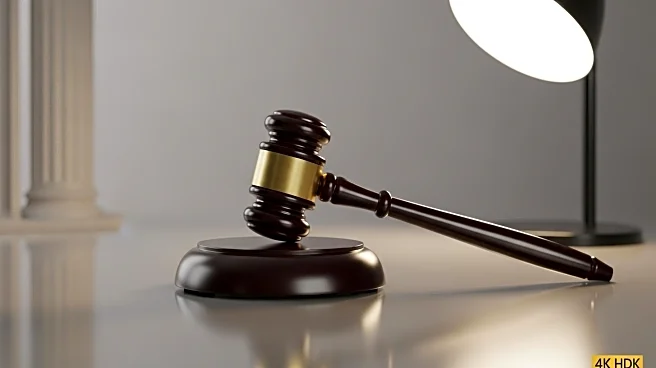What's Happening?
President Trump's administration has filed an appeal against a ruling that prevents him from firing Federal Reserve Governor Lisa Cook. The appeal follows a decision by U.S. District Judge Jia Cobb, who ruled that Cook's removal was unlawful. The administration claims the right to dismiss Cook based on allegations of mortgage fraud related to properties she purchased before joining the Fed. Cook's attorneys argue that the firing is unjust, as Fed governors can only be removed for cause, typically poor performance or misconduct during their tenure. The case may escalate to the Supreme Court, which has previously allowed Trump to dismiss board members of other independent agencies but has indicated limitations regarding the Federal Reserve.
Why It's Important?
The appeal highlights ongoing tensions between the Trump administration and the Federal Reserve, an institution traditionally independent from political influence. If successful, Trump's ability to replace Cook could shift the balance of power within the Fed's governing board, potentially impacting monetary policy decisions. Economists favor independent central banks for their ability to make unpopular decisions, such as raising interest rates to control inflation, without political pressure. The case underscores the broader debate over presidential authority and the independence of federal agencies.
What's Next?
Cook is expected to participate in an upcoming Federal Reserve meeting, where a decision to reduce the key short-term interest rate is anticipated. The appeal process could lead to a Supreme Court review, setting a precedent for presidential power over the Federal Reserve. Stakeholders, including economists and political leaders, will closely monitor developments, as the outcome could influence future interactions between the executive branch and independent agencies.











